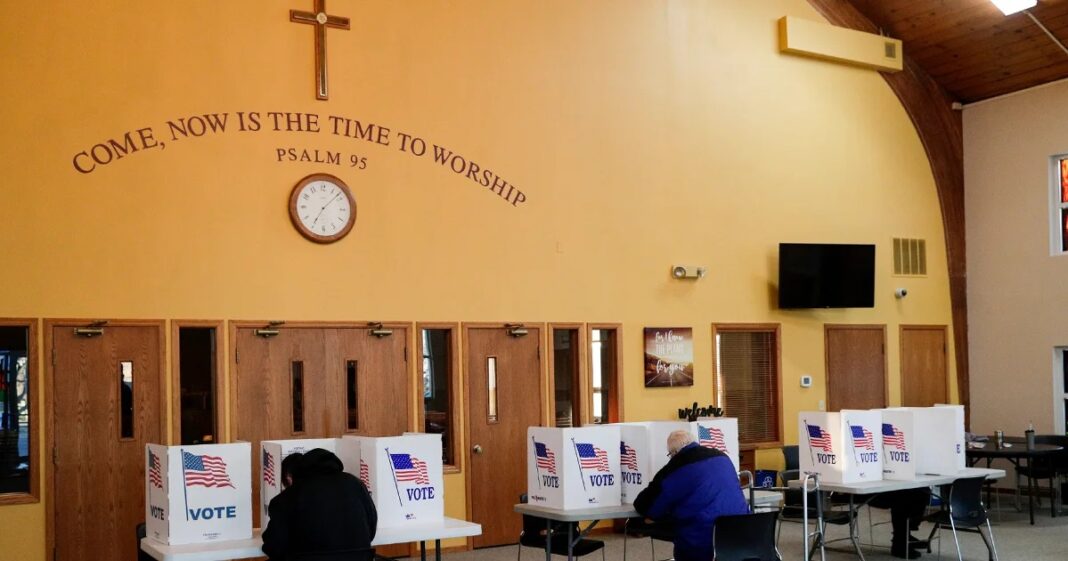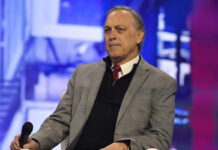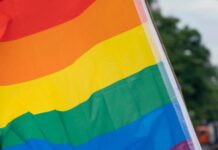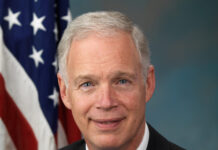By Jorge Gomez
First Liberty
79% of Americans identify as a person of faith. But only 51% of those who identify as “people of faith” are likely vote in November, according to a new study.
George Barna conducted two national surveys in September to determine religious Americans’ interest levels and their likelihood to vote in the November presidential election. The first survey measured the attitudes of adults in the United States. The second survey included adults who self-identified as Christians and attended church services at least once a month. In total, 3,000 qualified adults were interviewed.
The study notes that about four out of every five Americans are people of faith. This includes those who self-identify as a person or faith or are associated with recognized religious faiths, such as Christianity, Judaism, Mormonism, Islam, etc.
Out of this group, 51% are likely to vote while 49% are not likely to vote. There are about 212 million adults who fit the “person of faith” category. If 49% of them do not turnout to vote, that would represent about 104 million non-voters.
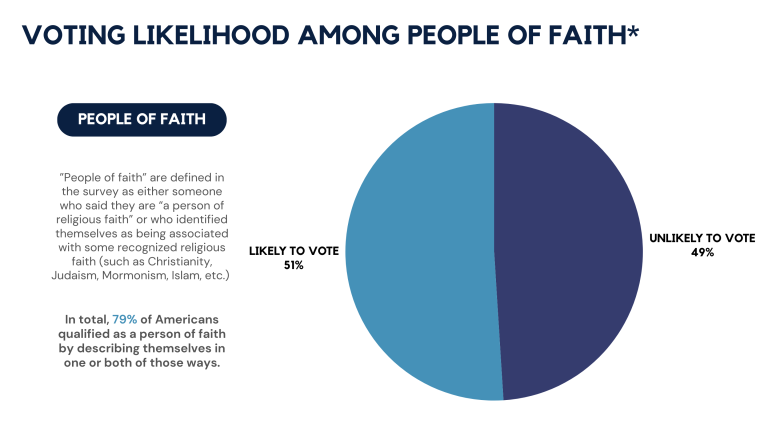
Within the Christian faith group, 41 million born-again Christians are expected to not vote in this election. Out of self-identified Christians who regularly attend church services, 32 million are unlikely to vote, including 14 million who regularly attend an evangelical church.
Why aren’t more religious Americans voting? Here are the reasons they gave:
- Not being interested in politics (68%)
- Disliking all major candidates (57%)
- None of the candidates reflected their views (55%)
- Believing that one vote doesn’t make a difference (52%)
- Thinking the current election is too controversial (50%)
- Believing the election is rigged or don’t know enough about the candidates (48%)
- Think that their favorite candidate can’t win (36%).
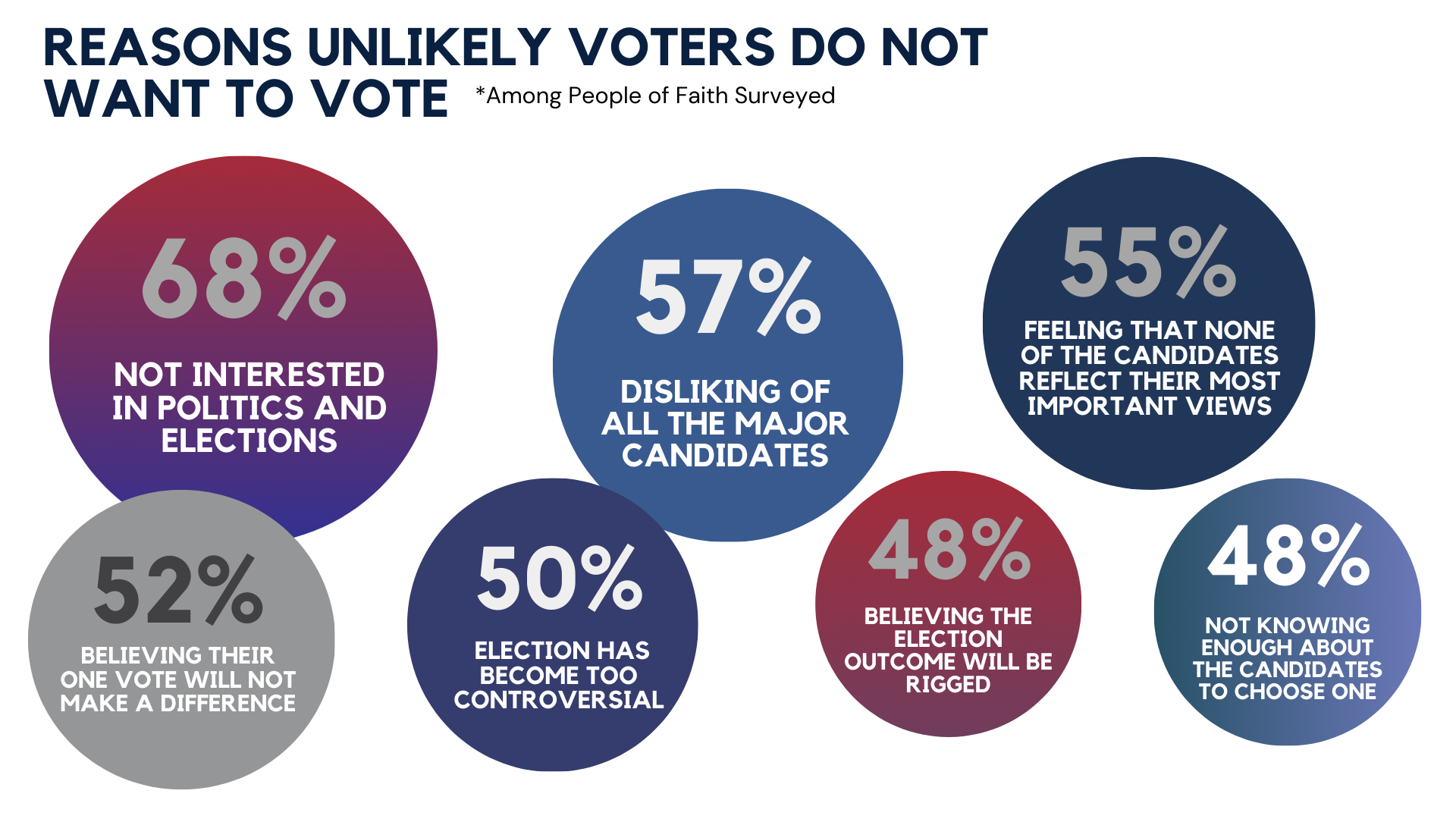
Recent trends, however, suggest that people of faith can be motivated to vote. For example, about 6 in every 10 churchgoing Christians said they vote in every election. Only 3 in 10 said they vote inconsistently. Fewer than 1 in 10 said they are not registered, or that their voting pattern varies according to the importance of the election or how convenient it is to vote in that cycle.
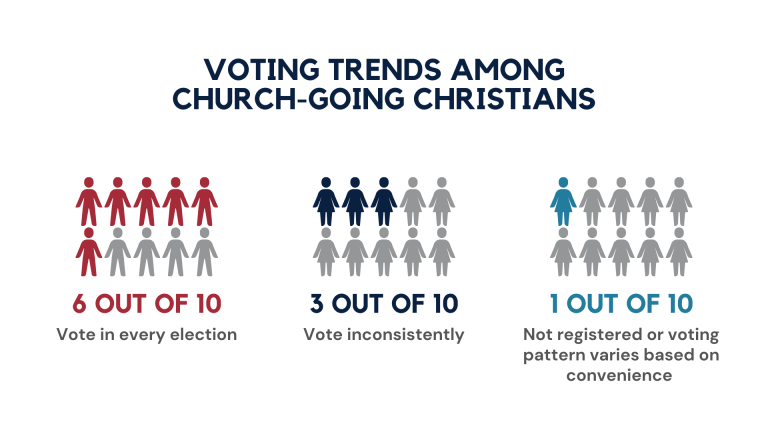
What would motivate America’s faithful to turn out to the polls? Religious non-voters appear more likely to cast a ballot when they’ve been informed and educated about the importance of civic participation. Helping them understand why their vote matters can make all the difference. Some of the biggest voting motivators include:
- If family or friends were able to convince the non-voting person of faith that voting is too important to not participate, about 14% of the non-voters said they would turnout.
- Another 14% claimed that if they perceived the race to be close enough that their vote might actually make a difference, then they would cast a ballot.
- The problem of distorted information is a major deterrent for about 1 in 7 non-voters. That 14% claimed that if they received an unbiased, objective briefing about what each of the major candidates supports and opposes, they would be likely to vote.
- A church teaching its congregants that voting is a biblical responsibility of every Christian would cause an estimated one out of six people of faith who plan not to vote to actually participate on Election Day.
Additionally, Barna projects that five million additional Christians would likely vote if their pastor simply encouraged them to do so.
The study estimates that “if even 10% to 15% of the non-voters could be stimulated to vote, that could increase turnout by millions of people—and potentially sway the outcome.” That seems to be consistent with other reports and data indicating that religious voters could be the deciding factor in the upcoming election.
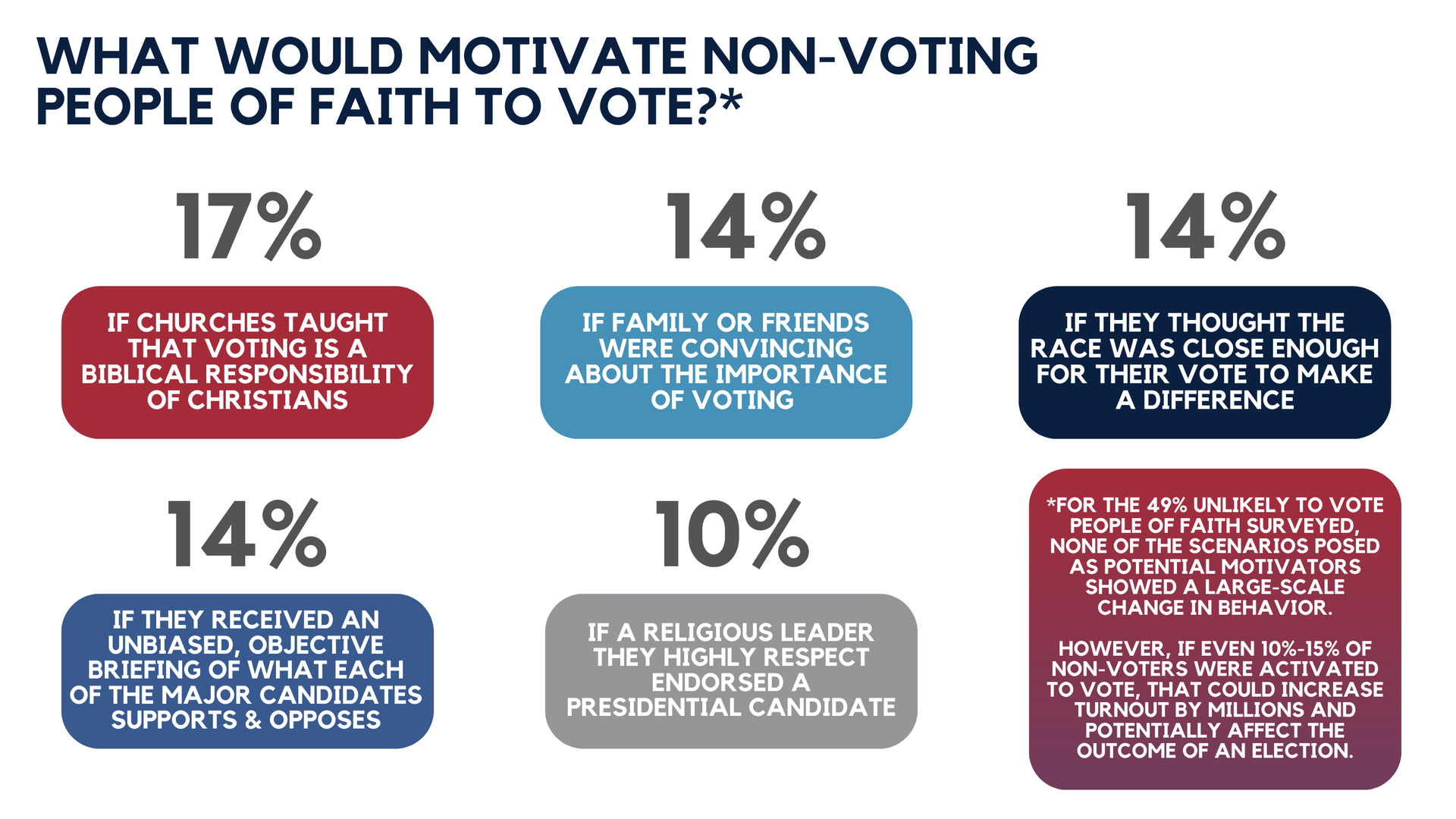
Election Day is only a few weeks away and early voting is already underway in many states. People of faith in America should remember that elections have consequences. There’s a lot at stake this election cycle, including the integrity of the Supreme Court and many of our cherished rights.
Let’s not forget that protecting religious freedom and all our God-given liberties isn’t just a battle we’re fighting in the courtroom. It’s a fight that we can also engage at the ballot box.
Visit First Liberty’s Election Resource Center for more information, free downloads and resources, videos and helpful guidance.


